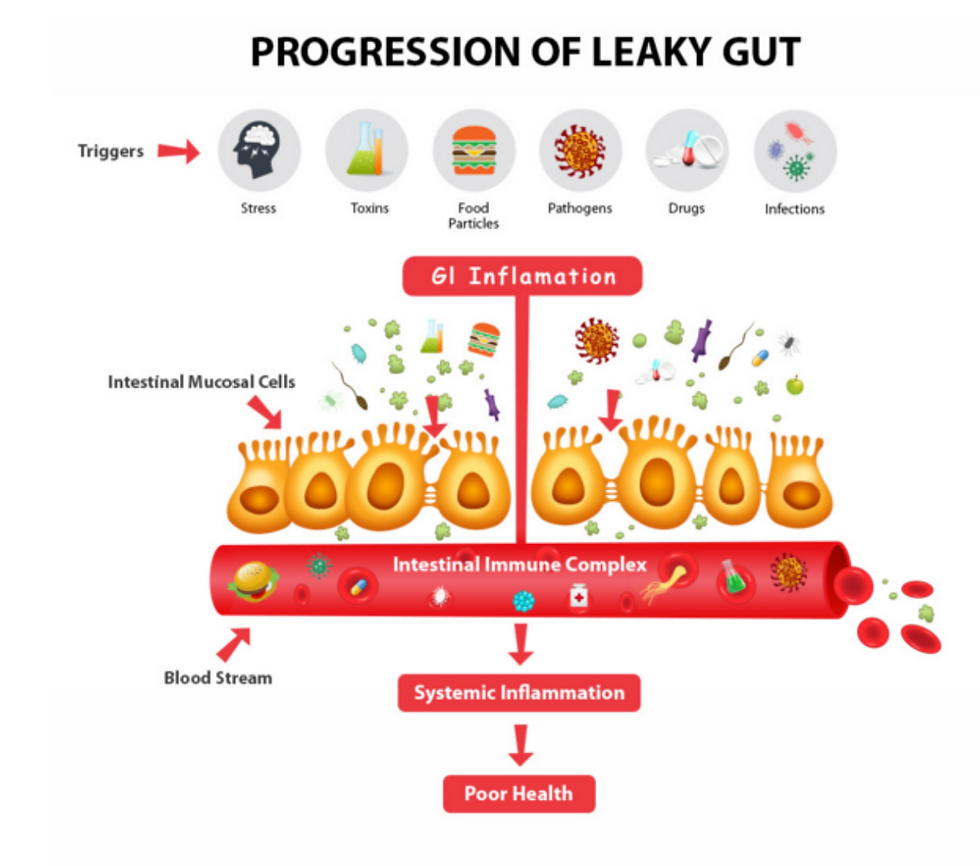Is Constipation a Health Risk?
- ella40105
- Feb 3, 2021
- 2 min read
Updated: May 10, 2021

Constipation is a health risk for chronic disease. One of the major functions of
your GI tract is to eliminate toxins. Regular bowel movements are extremely
important for your health because, without them, toxins accumulate and are
recirculated in your bloodstream. Toxin accumulation can lead to much more
serious health complications like autoimmune disease, high cholesterol, poor gut
health, diabetes, heart disease and much more. In fact, a recent study found
links between chronic constipation and rectal cancer, gastric cancer, diverticulitis,
and ischemic colitis.
What causes constipation?
15% of Americans suffer from constipation. One of the primary causes of
constipation has to do with your diet. Particularly if you are eating one high in
processed foods and low in fiber. Some of the other common causes include
hypothyroid function, intestinal infections, dehydration, magnesium deficiency,
and ignoring the urge to go. If you constantly ignore the urge to go, you will
eventually stop feeling the urge. Certain medications can also contribute to
constipation; pain relievers, anti-depressants, antacids, and blood pressure
medications to name a few.
What can you do to combat constipation?
At Undercurrent Wellness, we take constipation very seriously. The
toolbox we use with our client’s includes:
Increase fiber in the diet with fruits and vegetables, chia and flax seeds, and/or a supplement of psyllium husk fiber. Fiber both feeds good bacteria in your gut AND pulls water into your stool making it easier to pass, both of which are essential for combating constipation.
Increase fluid intake to 8-10 glasses of water per day. Hydration makes it less likely to have hard dry stools that are difficult to pass.
Increase physical activity and movement. The movement helps increase the motility in your digestive tract and can stimulate the urge to have a bowel movement. When you do feel the urge, don't wait. The longer the stool sits in your colon, the more water is removed and the more difficult it is to pass.
Abdominal massage can increase motility and stimulate the urge to go.
Supplement with Magnesium citrate. Magnesium has a laxative effect because it draws water into the stools, making them softer and easier to pass. Magnesium can also make you sleepy so we typically recommend taking it at night before bed.
Supplement with Vitamin C. Vitamin C also has a laxative effect. We typically recommend increasing the dose until you see that effect.
Meditation/relaxation exercises. Stress can be a huge barrier to having regular bowel movement. Stress reduction techniques can help remove this barrier.
Dedicate time to allow for a bowel movement each day.
Supplement with probiotics and fermented foods as they improve gut health overall.
If the above approaches do not seem to be working for you it may be time to dig
a little deeper into the root cause of your constipation. We would recommend
beginning by looking at thyroid and gut health with advanced testing.




Comments